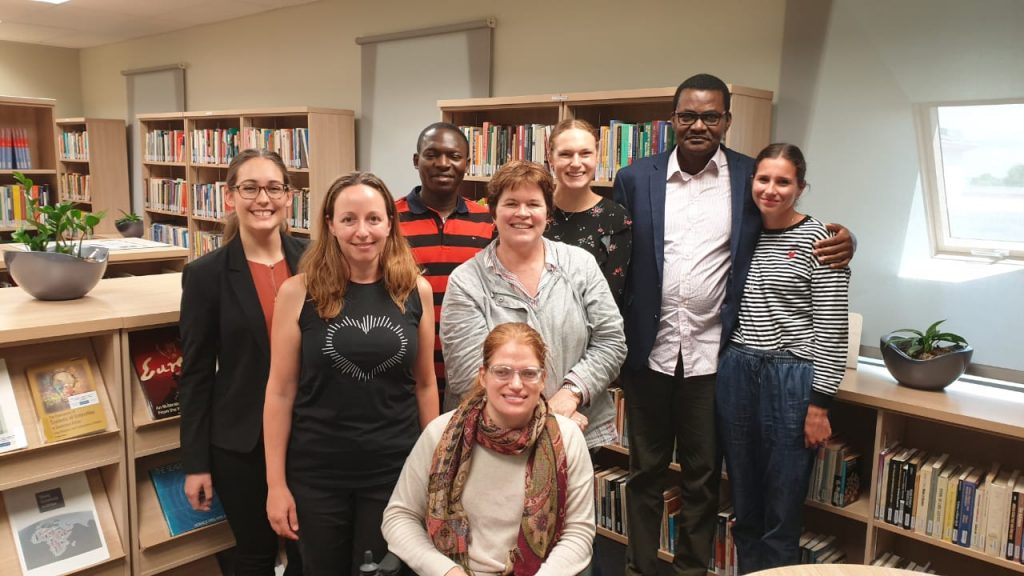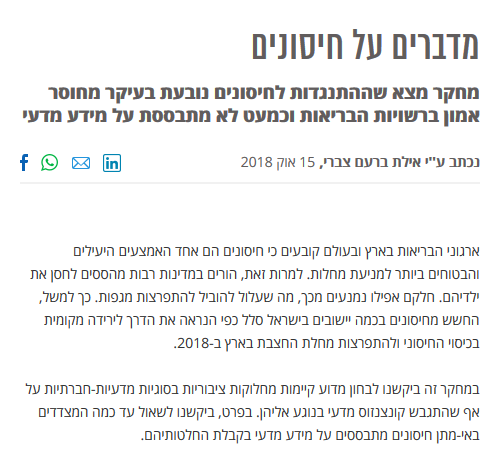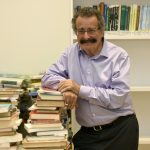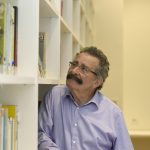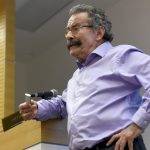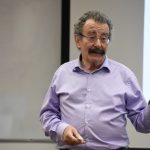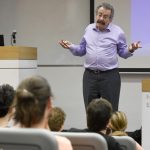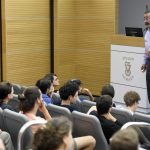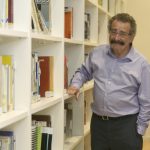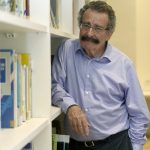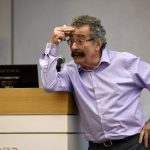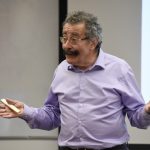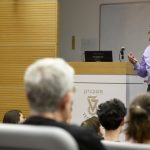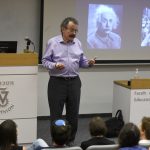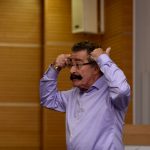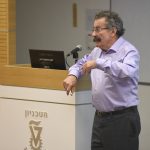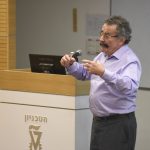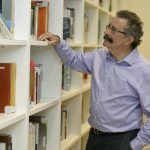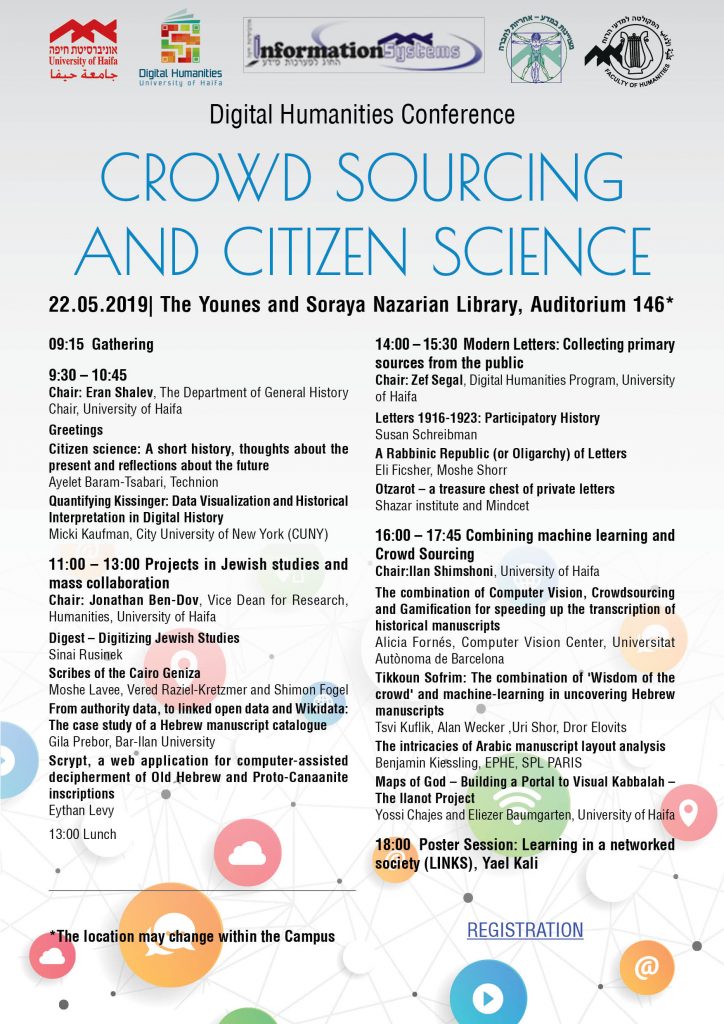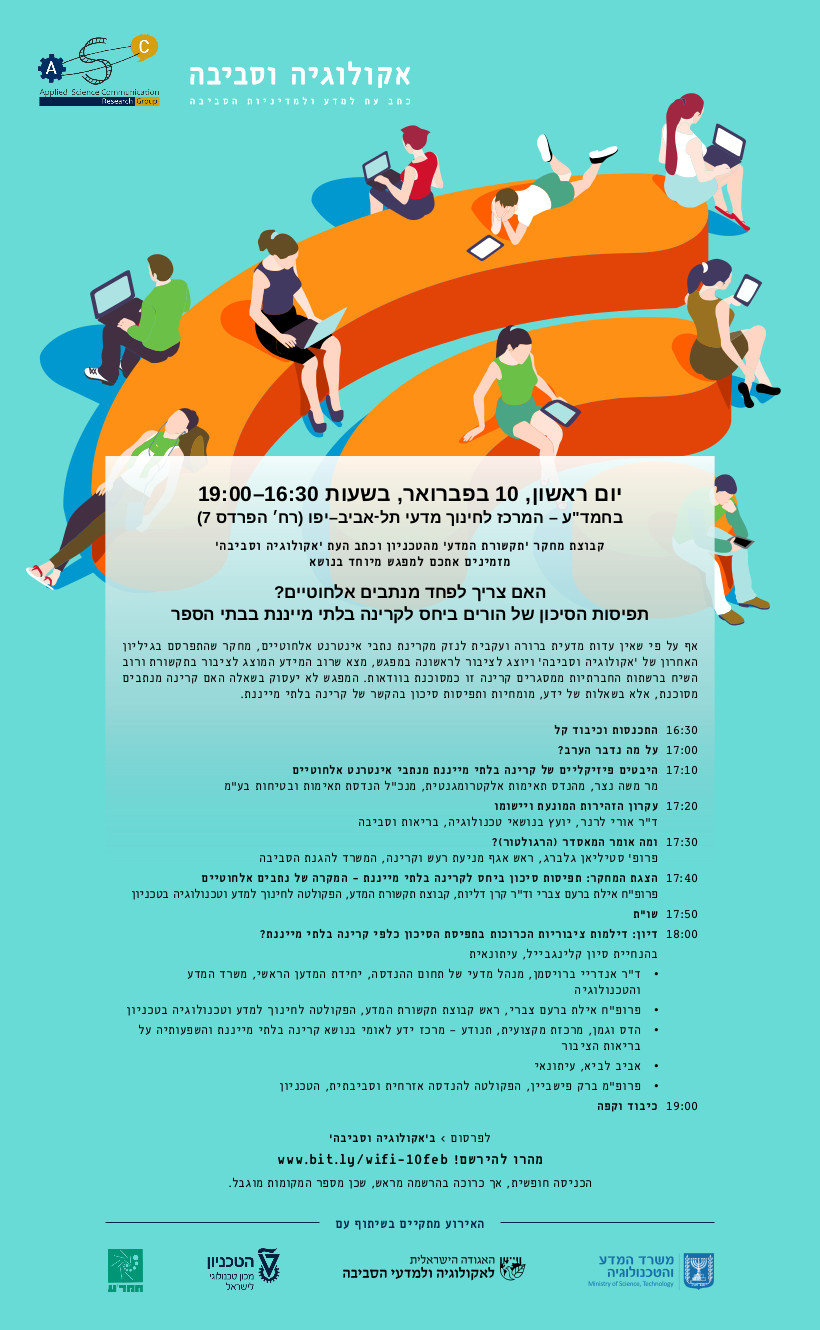Author Archives: Aviv Sharon
Aviv Sharon
August 14, 2019
Photos from Prof. Lord Robert Winston’s lecture, “Why bother about Science?”
Aviv Sharon
April 17, 2019
Check out this post about experts’ goals and constraints when discussing vaccines with laypeople on a Facebook group on “The Polio Network”, part of the Communication Initiative Network.
“The researchers found that experts used a diverse set of considerations in their online communication about vaccines. Goals included disseminating knowledge about the vaccines and the diseases they help prevent, defending science against unfounded rumours and conspiracy theories, and calming fears of parents. At the same time, answerers were mindful of 2 salient constraints: maintaining collegiality with their health professional peers and avoiding provision of medical advice for individuals, even though askers’ questions are often phrased in individual terms.”
Aviv Sharon
April 17, 2019
Aviv Sharon
April 17, 2019
The LINKS Israel Center of Research Excellence invites you to the book launches of “Learning in a Networked Society” at Ben-Gurion University of the Negev and the University of Haifa.
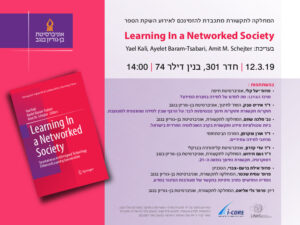
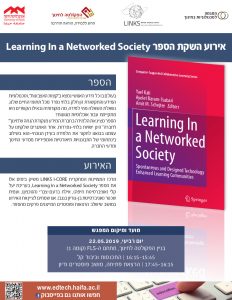
—
(From the acknowledgements):
LINKS (Learning In a Networked Society) was born in the spring of 2013. A team of researchers from four academic institutions specializing in more than half a dozen scholarly disciplines and supported by a substantial grant as part of Israel’s national effort to create centers of research excellence set foot to explore the vast terrain of learning in the information society.
Six years, hundreds of papers, scores of meetings, and half a dozen annual gatherings later, we are proud to present LINKS’ own synergetic offspring—an edited book comprised of chapters that demonstrate what a joint interdisciplinary effort can bring about. Extending the biological metaphor allows us to acknowledge how the genealogy of academic work is expressed in this cooperative effort. Indeed, it involves parents (academic supervisors), children (graduate students), and grandchildren (their respective students), and it brings together academic marital relationships, creates new families, discovers relatives near and far (disciplinary contacts), and eventually brings about a village to grow an edited book.
In the case of this book, it took the cooperation of researchers in education, communication, sociology, information and knowledge sciences, law, health and welfare, and human-computer interaction (HCI) from the University of Haifa, Ben-Gurion University of the Negev, the Technion – Israel Institute of Technology, and the Interdisciplinary Center, Herzliya, to create the Learning In a Networked Society (LINKS) community. As editors of this book, we would like to express our deepest gratitude to all who have made contributions to this work.
First, indeed, are our fellow researchers and the institutions that supported their work: from the University of Haifa, Dror Angel, Keren Aridor, Osnat Atias, Sarit Barzilai, Hava Ben-Horin, Maya Benichou, Dani Ben-Zvi, Niva Elkin-Koren, Yoni Har-Carmel, Dorit Geifman, Oren Golan, Yotam Hod, Carmel Kent, Adi Kidron, Hana Manor, Nakhi Mishol-Shauli, Shai Olsher, Carmit Pion, Daphne Raban, Sheizaf Rafaeli, Amit Rechavi, Ornit Sagy, Tamar Weiss, and Michal Yerushalmy; from the Ben-Gurion University of the Negev, Nelly Elias, Malka Shacham, Iris Tabak, and Noam Tirosh; from the Technion – Israel Institute of Technology, Yaela Golumbic; and from the Interdisciplinary Center at Herzliya, Oren Zuckerman.
We were very fortunate to enjoy the support and contributions of collaborators from all over the world, who agreed to contribute overarching insights to our collaborative work and enrich this book: Clark Chinn from Rutgers University, Ulrike Cress from Knowledge Media Research Center and the University of Tuebingen, Christopher Hoadley from New York University, and Lynn Schofield-Clark from the University of Denver. Within this international group, we are especially thankful to Christopher Hoadley—the editor of the Computer-Supported Collaborative Learning (CSCL) book series—who helped conceptualize this book and provided invaluable comments on early versions of the chapters. His interdisciplinary and historical perspective on learning in a networked society, and CSCL as a field, as expressed in the first chapter of this book served as a cornerstone in framing our arguments. We also greatly appreciate the preface he wrote.
The LINKS community was home to dozens of graduate students and postdoctoral fellows, without which it simply would not have been able to exist. We thus owe gratitude to each and every one of them for the enlightening discussions, thoughtful comments, and hard work they contributed to the joint effort.
This project and this book would of course not have been possible were it not for the generous support of the Israeli Centers of Research Excellence (I-CORE) Program of the Planning and Budgeting Committee and the Israel Science Foundation (project number 1716/12) and the invaluable assistance and devotion of Ella Fire and Liat Maoz.
Our work in the past 6 years has been nurtured with professional support from multiple figures in our institutions’ research authorities. We are especially thankful to the University of Haifa’s research authority and particularly to the devoted work of Sharon Link, Director; Arie Marko, Co-Director; and Nir Adelsberg, Management, who were not only committed to provide help on an everyday basis but also resourceful in finding creative solutions to administrative challenges that our multiinstitutional interdisciplinary endeavor required.
We extend special thanks to the tremendous help and devotion of our project manager, Debbie Huck, the midwife of this book and the heart and soul of the LINKS community. LINKS could not have happened without her thoughtful coordination, and this book would not have come about without her organizational skills, attention to detail, total commitment, and true dedication to LINKS and its intellectual heritage.
LINKS is a dream come true. Our sincere gratitude goes to all of the fellow dreamers and travelers on this journey who made it happen.
Yael Kali (University of Haifa)
Ayelet Baram-Tsabari (Technion – Israel Institute of Technology)
Amit Schejter (Ben-Gurion University of the Negev)
Please Welcome Our New Podcast: Sharing Science

We’re happy to present our new podcast: Sharing Science!
This podcast focuses on science communication, science education and everything in between.
Here you will find some of the leading researchers in these fields talking about the foundations as well as the burning issues.
The podcast was created as part of the international workshop PESO 2017.
You’re welcome to listen through the Sharing Science Podcast Website, or through your favorite podcast software, by using these links:
Let us know what you think at @sharingscience1 !
Aviv Sharon
February 4, 2019

Azrieli Fellows Program Annual Leadership Seminar:
Communicating Science
February 21, 2019 | 09:00-16:00
Camilo – The Green House
24 George Wise St., Tel Aviv
Keynote Speakers:
Prof. Ayelet Baram-Tsabari, Technion – Israel Institute of Technology
Prof. Hanoch Gutfreund, The Hebrew University of Jerusalem
Aviv Sharon
January 21, 2019
המדע אינו מציג ראיות לנזקים מקרינת נתבי אינטרנט אלחוטיים, אך מחקר, שהתפרסם בגיליון האחרון של ‘אקולוגיה וסביבה’ ויוצג לציבור לראשונה במפגש, מצא שרוב המידע המוצג לציבור בתקשורת ורוב השיח ברשתות החברתיות ממסגרים קרינה זו כמסוכנת.
- האם הציבור יודע מספיק על קרינה בלתי מייננת? כיצד צריך להעביר לו מידע נוסף?
- כיצד לעודד דיון מושכל בבעיות בעלות בסיס מדעי?
- איך מתמודדים עם דילמות ציבוריות הכרוכות בתפיסת הסיכון כלפי קרינה בלתי מיינת?
- כיצד ידע מדעי צריך להשפיע על קבלת החלטות? מה מקומו של הדיון הציבורי בקביעת מדיניות?
